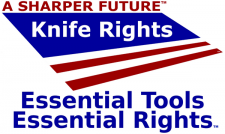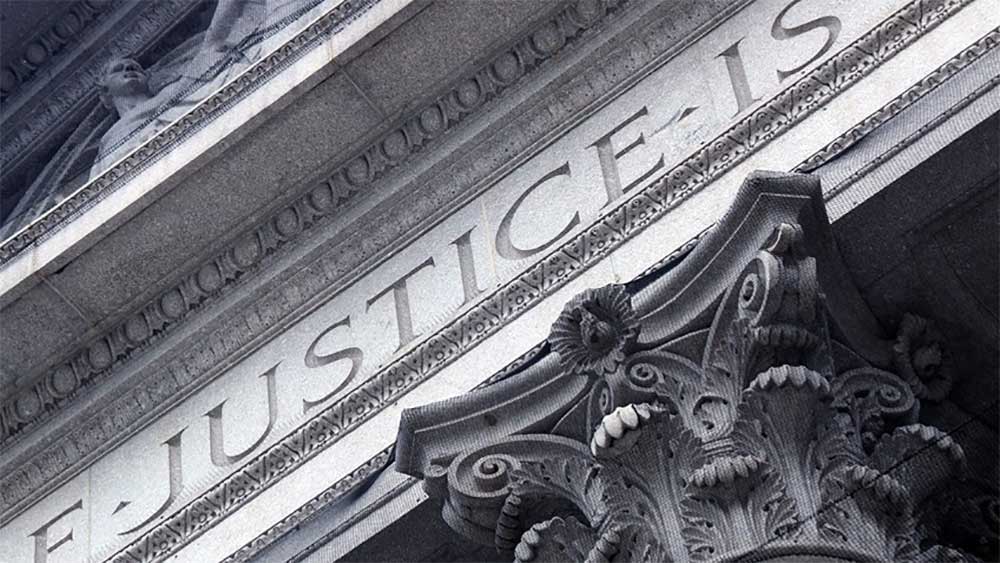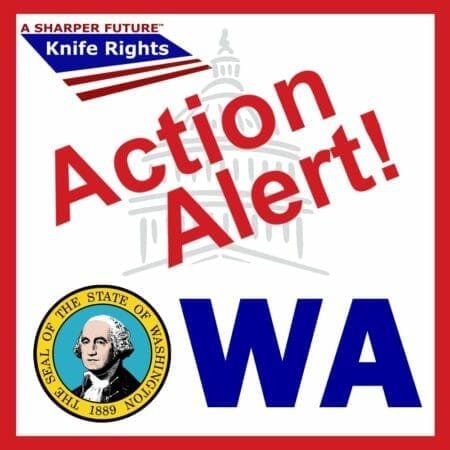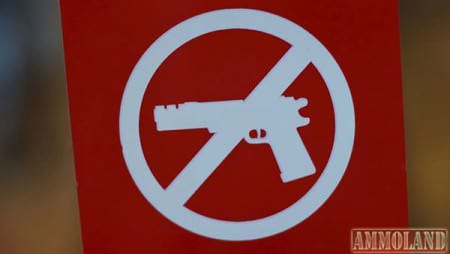
USA – -(AmmoLand.com)- Three amicus curiae (friend of the court) briefs have been filed in support of plaintiffs’ petition for Writ of Certiorari to the Supreme Court of the United States in our nearly eight-year-old civil rights lawsuit over New York City’s persecution of pocket knife owners.
Knife Rights Chairman Doug Ritter said, “we are thrilled to have three really strong amicus briefs from a diverse group of parties supporting our effort to get the U.S. Supreme Court to hear this case. These briefs come from nationally recognized constitutional and criminal law professors and scholars, along with the CATO Institute and The Legal Aid Society. We are grateful for the support of these parties and once again urge the Court to take this important civil rights case.”
As noted when we filed the petition, in order to have our petition granted and then move on to the merits of our case we must first convince the Court of the importance of addressing the larger constitutional issues surrounding vagueness and how it is applied in the different circuits. These briefs provide additional legal support on that issue and encouragement to the Court to grant our petition.
The first brief, filed by filed by constitutional scholars Alex Kreit, Cristina D. Lockwood and Eugene Volokh, argues that the distinction between a facial vagueness challenge and an as-applied vagueness challenge, and the test that should be applied to each type of challenge, is a question that has long vexed the Supreme Court and the courts of appeals. It explains why this case provides a unique opportunity for the Court to clarify the threshold question of what defines a facial challenge, as well as to provide guidance on what test should apply to each type of challenge.
This brief was produced by a team of law students who participate in the Emory Law School Supreme Court Advocacy Program including Team Leader Brandon Scheck, Krishna Shah, Haven Taylor, Grant Tucek and Stephanie Bauer, supervised by Professor Sarah M. Shalf. ELSSCAP is the only student-run Supreme Court litigation program in the United States, producing petitions for certiorari and amicus briefs in a broad range of practice areas. Students work under the guidance of experienced litigators as they handle all aspects of ELSSCAP’s work, giving them a unique opportunity to choose cases, write briefs, and engage in significant issues that merit being heard by the U.S. Supreme Court.
Ritter said, “A special thank you goes out to Professor Shalf’s ELSSCAP students for voting to take on this project and for producing an exceptionally strong brief that reads like the work of seasoned professionals. Their professionalism and hard work should be acknowledged by all knife owners.”
Click to read the ELSSCAP Constitutional Scholars’ amicus brief.
The second brief, filed by a group of six criminal law professors led by Yale law professor Gideon Yaffe with the CATO Institute, raises the further point that this is a particularly good case for addressing the standards for vagueness challenges given that the law being challenged also lacks a mens rea (knowledge/intent) requirement as to the very element challenged as vague. Worse, not only is lack of criminal intent not a defense, but as the brief points out, even if a person takes proactive steps to ascertain legality, they can still run afoul of the law because of the City’s vague and indeterminate application of the law and the Second Circuit’s confused and inappropriate application of prior Supreme Court decisions. “It is [this] combination of vagueness and strict liability that makes this case especially important, noxious, and deserving of review.”
This brief is updated and revised from a brief written for the Second Circuit appeal by Douglas M. Garrou, a partner at Hunton Andrews Kurth LLP in Richmond, Virginia. Counsel of Record is Erik S. Jaffe of Schaerr Jaffe LLP in Washington, D.C. with Co-Counsels Ilya Shapiro and Clark Neily of the CATO Institute.
Click to read the CATO Institute/Criminal Law Professors’ amicus brief.
The third brief, filed by The Legal Aid Society of New York City, explains that the Second Circuit’s decision, concluding that plaintiffs must show that a law is vague in all of its applications to succeed in a facial vagueness challenge, means that a finding of a single lawful application of New York’s gravity knife statute will deny thousands of their clients Due Process. The Second Circuit’s decision insulates that law from meaningful scrutiny and prevents its clients from obtaining systemic relief. The inevitable result is that unless the decision is reversed thousands of innocent New Yorkers, disproportionately persons of color and minorities, will continue to be prosecuted for possessing tools that sell across the country.
Please consider a TAX-DEDUCTIBLE donation to Knife Rights to support our efforts at the Supreme Court. Donate at: www.kniferights.org/donate/foundation
About Knife Rights :
Knife Rights (www.KnifeRights.org) is America’s Grassroots Knife Owners Organization, working towards a Sharper Future for all knife owners. Knife Rights is dedicated to providing knife owners an effective voice in public policy. Become a Knife Rights member and make a contribution to support the fight for your knife rights. Visit www.kniferights.org







They’ll bust people for any kind of knife…..if they see it, including just the pocket clip. Keep the knife fully in your pocket, or in a closed sheath on your belt, and you are golden. I always carried a blade in NYC, even in the presence of NYPD officers, and never had a problem.
On the other hand, their laws are a total infringement.
Hope this gets heard. Has great potential as a broader 2A case… i.e. vagueness as applied to an “assault weapon”, etc. Would be a great win across the board.
@WG, Yes, it is messed up that one must become an expert on the law of every city, county, and state that they will be transiting through, every time one travels. Of course that situation would not apply to the elites. Maybe we should just get back to the Constitution.
You mean the times I have been in NY WITH a pocket knife, I was breaking a law that I had no idea of???? Come on…
Well, I don’t live in NYC, but I have had several places of public access turn me away for a pocket/hunting knife policy.
The laws are supposed to bring a clear and uniform charge for violation.. If there are no standards, who can comply?
The left has already turned our legal system upside down, with guilty until proven innocent laws; like ERPO
Have you read about the backlog in California gun confiscations… they’re hiring contractors now to help steal your guns people!